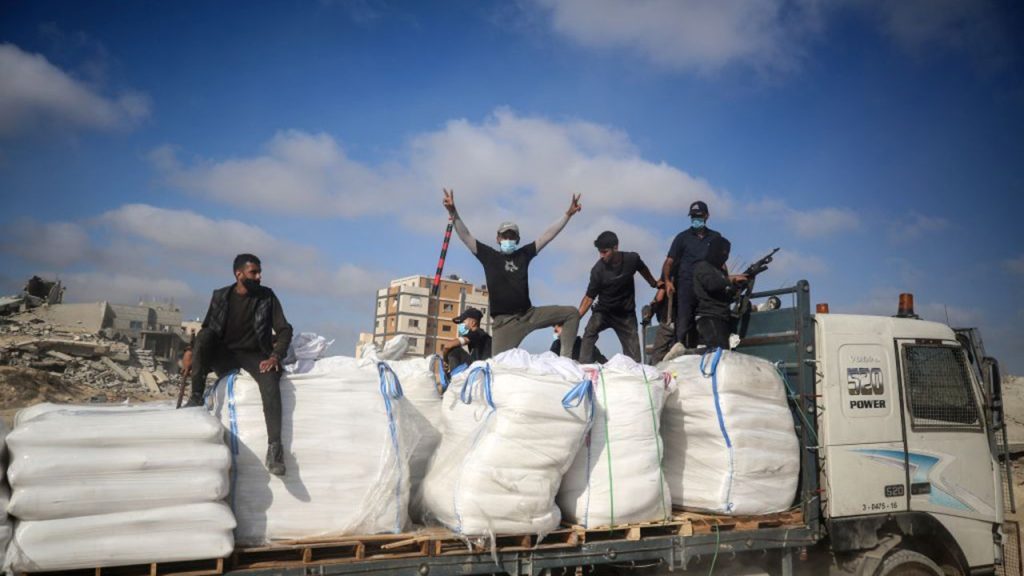Israel Disputes UN Famine Declaration in Gaza: A Crisis of Data and Diplomacy
In a sharp diplomatic clash, Israel has rejected a United Nations-backed report claiming famine conditions in Gaza, dismissing it as containing “gross forgeries” and threatening to lobby donor countries to cut funding unless the report is withdrawn. The controversy centers on an August 22 assessment from the Integrated Food Security Phase Classification (IPC), which declared that famine is already occurring in the Gaza Governorate and likely to spread to other areas by the end of September. This high-stakes dispute highlights the complex intersection of humanitarian concerns, political tensions, and the challenge of accurately assessing conditions in a war zone.
The IPC report painted a dire picture of Gaza’s humanitarian situation, projecting that approximately one-third of Gaza’s 2 million residents—around 641,000 people—could soon face catastrophic starvation. According to their assessment, 132,000 children under age 5 are projected to suffer acute malnutrition through 2026, including more than 41,000 severe cases. The report additionally claimed that over 55,000 pregnant and breastfeeding women require urgent nutrition support. These alarming figures were attributed to nearly two years of conflict, the massive displacement of 1.9 million people, the collapse of local food production, and severe restrictions on aid delivery. The IPC noted that even when food enters Gaza, much of it fails to reach civilians in need.
Israel’s response was unequivocal, with Foreign Ministry Director General Eden Bar Tal telling reporters that the IPC had manipulated evidence to declare famine conditions. In a detailed critique, Bar Tal accused the organization of fabricating 182 deaths to reach the famine threshold of 188 and breaking its own methodological rules. He claimed the IPC used prohibited malnutrition measures for Gaza, relied on clinic-based samples that violate their own protocols, and cherry-picked survey data. According to Bar Tal, of 15,749 children surveyed, the IPC selectively used only 7,519—just enough to push results above famine levels. The Israeli Foreign Ministry formalized these objections in a letter demanding the report’s withdrawal and distributed a presentation titled “The IPC Fraud,” which characterized the process as “shooting the arrow and then drawing the target.”
The dispute has drawn in other international actors, with the United States expressing its own concerns about the report’s credibility. At a Security Council meeting, Dorothy Shea, the acting U.S. ambassador to the UN, acknowledged hunger as a real issue and priority but questioned the report’s integrity. She highlighted that one of the report’s key authors has “a lengthy record of bias against Israel, including openly justifying the Houthi terrorist attacks on Israeli civilian targets.” Shea suggested this bias explained why normal standards were altered for this declaration, raising significant questions about its findings. This intervention from a key UN Security Council member adds another layer of complexity to an already contentious situation.
In defense of the report, UN spokesman Stéphane Dujarric rejected Israel’s claims, insisting that “the data that the IPC put out on famine in Gaza is robust. It is scientific and it is technical.” He explained that the IPC famine analysis used standard measurements reviewed by an independent group of experts who confirmed famine conditions in the Gaza Governorate. According to Dujarric, the assessment relied on “recent and verified” data from multiple UN agencies including the WHO, UNICEF, UNRWA, and WFP, while also considering figures from Israel’s Coordinator of Government Activities in the Territories (COGAT). When questioned about whether Hamas’s exploitation of aid was factored into the analysis, Dujarric said the report “illustrates the constraints that hinder humanitarian organizations from distributing aid and stand in the way of allowing people to get the aid they need.”
UN Secretary-General António Guterres intensified the international focus on Gaza’s humanitarian situation, declaring on Thursday that “Famine is no longer a looming possibility—it is a present-day catastrophe.” In his statement before briefing the Security Council, Guterres emphasized that “People are dying from hunger, families are being torn apart by displacement and despair.” This declaration from the UN’s highest official stands in stark contrast to Israel’s position and underscores the profound human implications of this dispute. Beyond the technical arguments about data collection and analysis methodologies lies the reality that Gaza’s civilian population continues to suffer amid the ongoing conflict, with access to food, medicine, and other essential supplies severely constrained. As diplomatic tensions escalate over the famine declaration, the fundamental humanitarian challenges remain urgent and unresolved, with millions of lives hanging in the balance.















